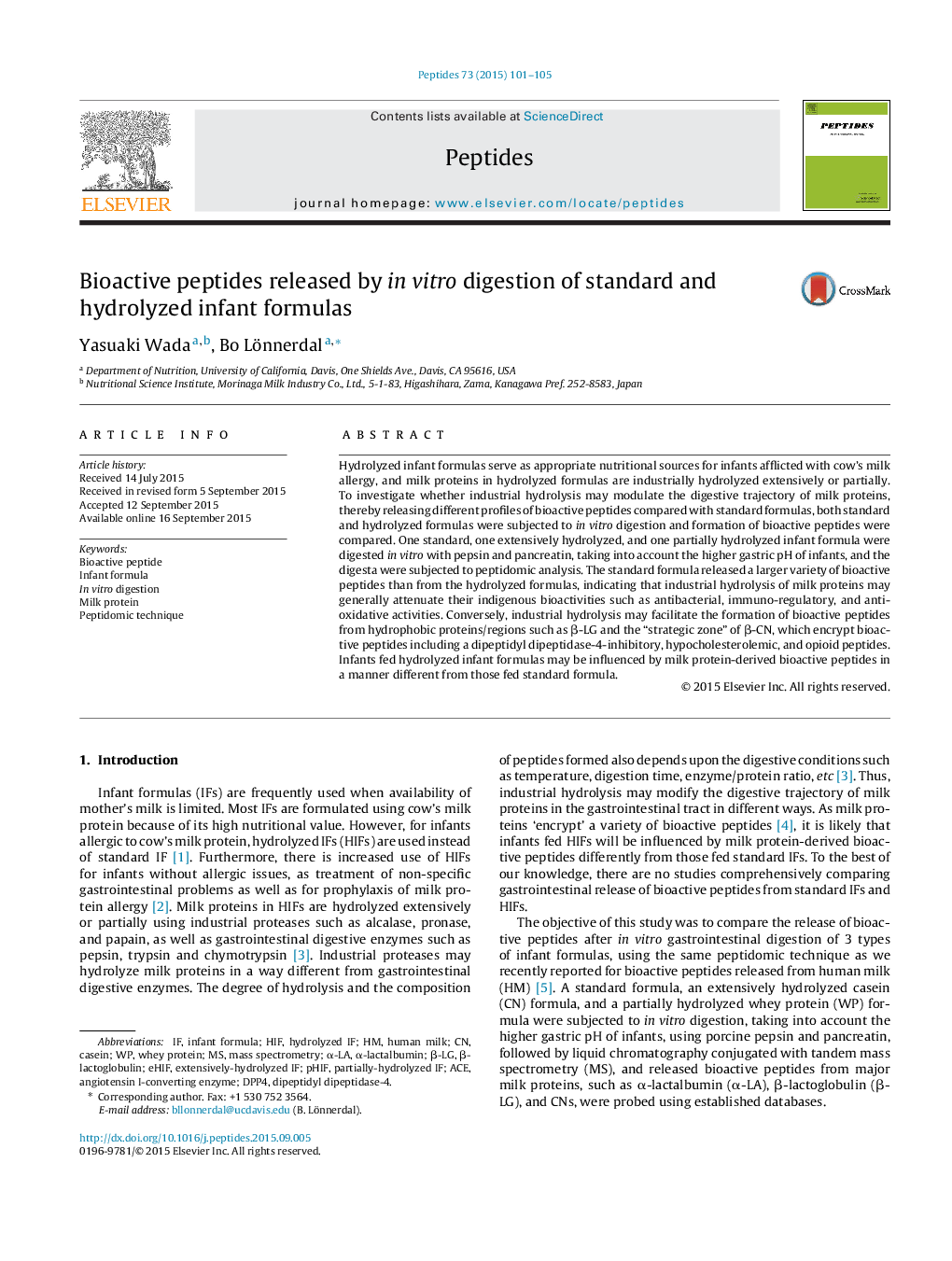| Article ID | Journal | Published Year | Pages | File Type |
|---|---|---|---|---|
| 8347872 | Peptides | 2015 | 5 Pages |
Abstract
Hydrolyzed infant formulas serve as appropriate nutritional sources for infants afflicted with cow's milk allergy, and milk proteins in hydrolyzed formulas are industrially hydrolyzed extensively or partially. To investigate whether industrial hydrolysis may modulate the digestive trajectory of milk proteins, thereby releasing different profiles of bioactive peptides compared with standard formulas, both standard and hydrolyzed formulas were subjected to in vitro digestion and formation of bioactive peptides were compared. One standard, one extensively hydrolyzed, and one partially hydrolyzed infant formula were digested in vitro with pepsin and pancreatin, taking into account the higher gastric pH of infants, and the digesta were subjected to peptidomic analysis. The standard formula released a larger variety of bioactive peptides than from the hydrolyzed formulas, indicating that industrial hydrolysis of milk proteins may generally attenuate their indigenous bioactivities such as antibacterial, immuno-regulatory, and anti-oxidative activities. Conversely, industrial hydrolysis may facilitate the formation of bioactive peptides from hydrophobic proteins/regions such as β-LG and the “strategic zone” of β-CN, which encrypt bioactive peptides including a dipeptidyl dipeptidase-4-inhibitory, hypocholesterolemic, and opioid peptides. Infants fed hydrolyzed infant formulas may be influenced by milk protein-derived bioactive peptides in a manner different from those fed standard formula.
Keywords
Related Topics
Life Sciences
Biochemistry, Genetics and Molecular Biology
Biochemistry
Authors
Yasuaki Wada, Bo Lönnerdal,
